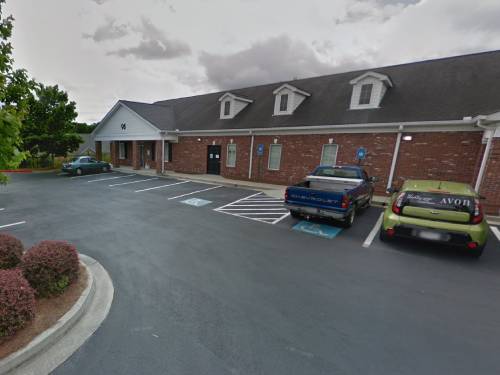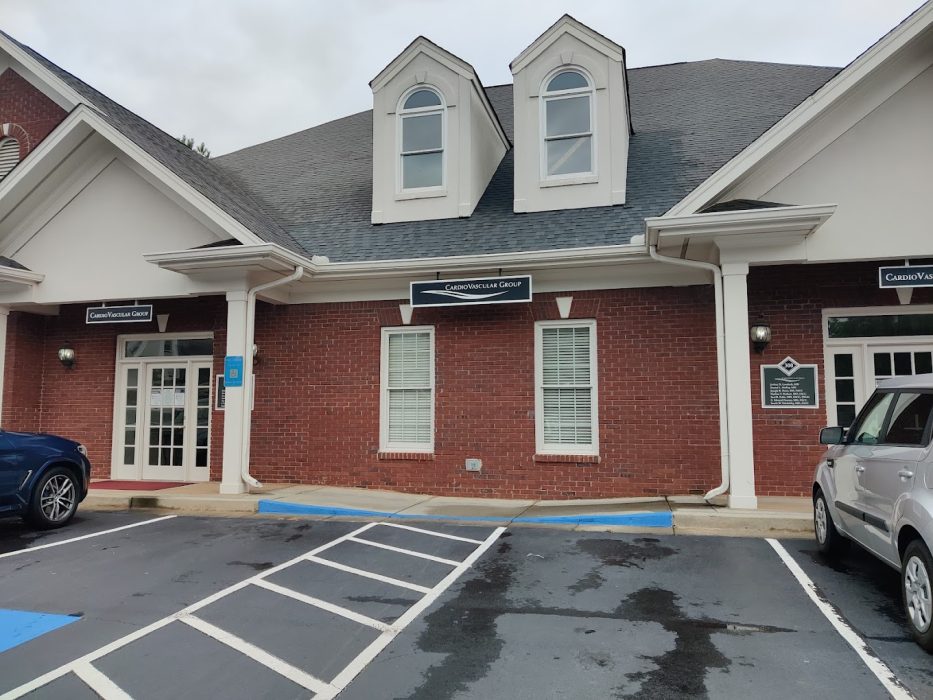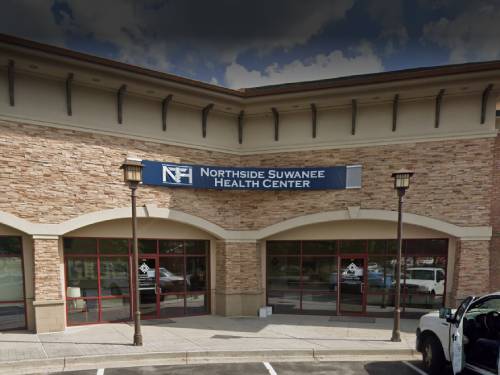Bradycardia
Lorem ipsum dolor sit amet, consectetur adipiscing elit.

Causes And Treatment For Bradycardia
Bradycardia is a condition that causes your heart to beat more slowly than expected, under 60 beats per minute. This is the opposite of tachycardia, which causes the heart to beat too fast. Bradycardia is sometimes an abnormal heart rhythm, or arrhythmia, and in many people it does not cause symptoms.
You’ve probably heard of a racing heart, but what about a heart that’s beating too slowly? This condition, bradycardia, is more common than you think and deserves your attention. If you’ve been feeling unusually tired, dizzy, or short of breath, it might be time to visit our CVGheart doctors to check for bradycardia.
When your heart rate drops below 60 beats per minute regularly, it is called bradycardia. Although this may occur naturally during sleep or in certain athletes, it may indicate a potential heart issue in others. Problems result when slow heartbeats deprive organs and tissues of oxygen-rich blood.
Isn’t a slower heart rate a sign of good health? Not necessarily. For many people, bradycardia can be a sign of a deeper health problem. You may experience fatigue that doesn’t improve with rest, making everyday tasks more challenging. Dizziness or lightheadedness can become frequent, especially when standing up quickly. In some cases, you might even experience fainting spells, which can be dangerous and lead to injuries.
Untreated bradycardia can have far-reaching effects on your overall health. You might notice difficulty concentrating or remembering things, as your brain isn’t receiving a steady supply of oxygen-rich blood. Some people with bradycardia report shortness of breath, even during mild exertion. In severe cases, it can lead to chest pain or even heart failure.
By visiting our CVGheart doctors, you’re safeguarding your health. Our cardiologists are experts in diagnosing and treating heart rhythm disorders, including bradycardia. They can perform comprehensive tests to determine the underlying cause of your slow heart rate, which could be related to issues with your heart’s electrical system, certain medications, or other health conditions.
During your appointment, you will receive customized care and treatment. This may involve monitoring your condition, adjusting medications, or considering a pacemaker to regulate your heart rhythm. Early bradycardia treatment can reduce complications and improve your quality of life.
Don’t ignore the signs your body is giving you. Take control of your heart health today by scheduling a visit with our Atlanta heart doctors. We can ensure that your heart is beating at the correct pace, which is vital to your health.
Learn more about bradycardia on this page and how CVG provides comprehensive cardiac care.
Risk Factors For Bradycardia
There are certain circumstances that provide an increased risk of developing bradycardia. These include being over the age of 65, as this condition causes symptoms in about 1 in every 600 adults in this age group. However, the amount of adults who experience bradycardia with no symptoms is likely to be much higher. Bradycardia typically affects older adults during sleep.
The other main risk factor for bradycardia is those who have high levels of physical activity. These people may develop bradycardia due to their good physical shape, as their hearts may pump blood more efficiently and meet their body’s needs at a slow heart rate, so extra exertion is unnecessary.
Causes Of Bradycardia
There are many things that can cause the irregular heartbeat associated with bradycardia. These causes include electrolyte deficiencies, anorexia nervosa, inflammation such as myocarditis or endocarditis, infections, radiation therapy, heart surgery, and drugs.
Bradycardia can also be due to conditions such as Lyme disease, Chagas disease, sick sinus syndrome, rheumatic fever and rheumatic infections, and heart block. Other possible causes can be heart attack, heart failure, coronary artery disease, muscular dystrophy, lupus, rheumatoid arthritis, hypothermia, hypothyroidism, and sleep apnea.
Testing For Bradycardia
To determine if you are experiencing bradycardia, your doctor will start with a physical exam and tests that measure your heart rate and examine your heart rhythm. The most likely test used to diagnose bradycardia is an electrocardiogram (EKG), as this is used to track your heart’s electrical activity with precision. This test involves electrodes stuck to the skin of your chest that detect the electrical signals your heart is sending. Other tests that may be ordered include lab tests, as these can rule out possible causes of bradycardia.
Lab tests that can be used will typically test your electrolyte levels and thyroid hormone levels. In the inpatient hospital setting your doctor may also test your troponin levels, which is a protein specific to the cells of your heart muscle. Damage to these cells can cause troponin to leak into your blood, which can indicate heart problems. You may also be given a toxicology screen.
Treatment For Bradycardia
If you are suffering from bradycardia without experiencing any symptoms, it’s likely that you may not require any treatment. For people who do experience symptoms, bradycardia is usually treatable and in some cases can even be cured. There are multiple ways to treat bradycardia, which may involve treating the underlying cause of the condition as well.
Medication is used to treat bradycardia if it is causing significant problems such as dangerously low blood pressure. In these cases, doctors will administer an intravenous or injectable medication that can cause your heart to beat faster. Receiving these medications usually requires a hospital stay as patients must be monitored during treatment. However, you may also be prescribed daily oral medications that are used to improve heart function.
Temporary cardiac pacing is another form of treatment that may be required. This involves attaching a device with electrical contacts to the skin of your chest. These contacts allow a mild electrical current to course through your body and cause your heart to beat. This is an effective treatment for those whose bradycardia is acute, but for those with long term issues, they may require a permanent pacemaker.
A permanent pacemaker is a highly effective method of treating bradycardia, especially for those whose condition is caused by other medical problems such as sick sinus syndrome. A permanent pacemaker does not cure bradycardia, but it is a long term solution of effectively managing it.
Symptoms Of Bradycardia
Prevention Of Bradycardia
Why Choose CVG?
Related Conditions:
- Causes And Treatment For Heart Arrhythmia
- Causes And Treatment Of Pulmonary Stenosis
- Expert Insights on Cardiac Catheterization
- Expert Insights on Low Blood Pressure
- Exploring the Latest Advances in Atrial Fibrillation Treatment
- Dangerously high cholesterol?
- Get Your Blood Pressure Test Today!
- Understanding Electrical Cardioversion
- What Are ACE Inhibitors Used For?
- What foods are high in cholesterol?
- What Heart Flutters Can Mean
- What is Heart Failure & How to Treat it?
- What Is The Success Rate Of The Watchman Procedure?
Top Conditions:
- How long can someone live with an enlarged heart?
- Pros and Cons of the Watchman Device
- Risks and Complications of Cardiac Catheterization
- Side Effects Of The Watchman Device
- The Benefits of Cardiac Catheterization
- The Dangers Of High Blood Pressure
- The Dangers Of High Cholesterol
- The Watchman Implant Procedure
- Tips To Lower High Cholesterol
- Understanding Cardiac Catheterization
Call to Schedule an Appointment
Board-certified Doctors
CVG’s twenty board-certified heart doctors will guide you through your healthcare journey with the utmost compassion and individual attention. We aim to provide you with state-of-the-art cardiac care that includes the full spectrum of services, from testing to diagnosis and treatment. The doctor/patient relationship is built on trust. Through our combined efforts, we can conquer any challenge that comes our way.
Invasive therapies may also treat an abnormal heart rhythm, such as electrical cardioversion, which sends electrical impulses through your chest wall and allows normal heart rhythm to restart, or catheter ablation that disconnects the abnormal rhythm’s pathway. Suppose your doctor determines that electrical devices are the best course of action. In that case, you may be given a permanent pacemaker, an implantable cardioverter-defibrillator (ICD), or biventricular (B-V) pacemakers and defibrillators.
How CVG Can Help
CVG offers multiple services that can discover an enlarged heart or conditions that will lead to it. At CVG, we perform stress tests that will observe blood flow and test for various forms of heart disease. There are three types of stress tests that we perform:
- A treadmill test is a test in which you will walk on a treadmill that gets faster and steeper every 3 minutes. This will stress your heart so that our nurse or doctor can determine your heart rate and blood pressure.
- An echo test is performed before and after your treadmill test to determine how well your heart pumps blood.
- A nuclear stress test is a treadmill test that is prefaced by an injection of medicine that shows the flow of blood to your heart.
We also offer cardiac catheterization to diagnose and treat several heart issues. If any of these tests determine a problem, we offer treatment solutions such as atrial fibrillation testing and catheter ablation. Learn more about our services here, or schedule an appointment to talk to our doctors.
Schedule Your Appointment with a CVG Atlanta Area Cardiologist
Expertise, experience, and compassion are the pillars of CVG’s patient-centered cardiac care. Please schedule your appointment with CVG today. Call (770) 962-0399 or 678-582-8586. You may also request an appointment online. If you have an emergency, don’t contact us online; please call 911.
Locations That Treat Bradycardia












